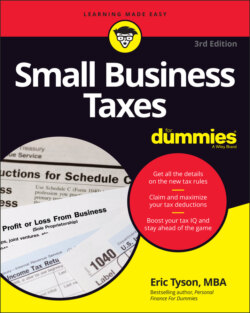Читать книгу Small Business Taxes For Dummies - Eric Tyson - Страница 49
SIDELINE BUSINESSES, TAX WRITE-OFFS, AND THE HOBBY LOSS RULES
ОглавлениеMany supposed tax gurus state that you can slash your taxes simply by finding a product or service that you can sell on the side of your regular employment. The problem, they argue, is that as a regular wage earner who receives a paycheck from an employer, you can’t write off many of your other (personal) expenses. Open a sideline business, they say, and you can deduct your personal expenses as business expenses.
The pitch is enticing, but the reality is quite different. You have to spend money to get tax deductions, and the spending must be for legitimate purposes of your business in its efforts to generate income. If you think that taking tax deductions as a hobby is worth the risk because you won’t get caught unless you’re audited, the odds are stacked against you. The IRS audits an extraordinarily large portion of small businesses that show regular losses.
You need to operate a real business for the purpose of generating income and profits, not tax deductions. The IRS generally considers an activity a hobby (and not a business) if it shows a loss for three or more of the preceding five tax years. (Exception: The IRS considers horse racing and breeding a hobby if it shows a loss for at least six of the preceding seven tax years.)
Some years, a certain number of businesses lose money, but a real business can’t afford to do so year after year and remain in operation. The IRS commonly views these activities as hobbies, particularly when they generate little if any income: antique collecting, crafts, creating art, photography, stamp collecting, training and showing dogs or horses, and writing.
Even if your sideline business passes this hobby test as well as other IRS requirements, deducting any expenses that aren’t directly applicable to your business is illegal. Also, the Tax Cuts and Jobs Act that took effect in 2018 eliminated the ability for those engaged in a hobby to deduct their expenses as an itemized deduction up to the limit of the income from their hobby for the calendar year. Now, those engaged in a hobby are supposed to report their revenue for tax purposes but are no longer able to claim an itemized deduction for their hobby expenses.
